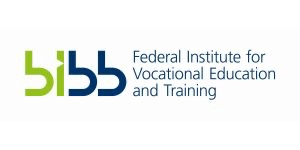The School of Electronics and Info-Communication Technology (SEIT) at Institute of Technical Education College West in Singapore has been implementing an interactive scenario-based learning experience to help students gain new skills and competencies while improving their retention of theoretical knowledge through interactive modules. Scenario-based learning infuses real work scenarios and situations into the curriculum, so that SEIT students learn to integrate and apply their skills and knowledge to handle and resolve real-world issues and problems.
SEIT’s pedagogical strategy utilizes interactive whiteboards with customized settings that enable students to interact with the course content, as well as their peers, in either participatory mode or facilitation mode. Customised learning packages require students to engage in scenario-based activities and to immerse themselves in real-world problems and challenges, applying theories and concepts to find potential solutions. Students can attempt a range of interactive learning activities, such as drag and drop, jigsaw puzzles, multiple choice questions, etc. They have to work in teams to analyse and solve the problems and communicate their solutions visually using the whiteboard.
Course lecturers are offered training to build their capacity in designing and managing modules and in developing interactive activities and scenario-based content to facilitate student learning and offer them hands-on learning experiences. Educators are required to have not only the skills to develop interactive content and apply digital tools, but also the ability to implement innovative pedagogies. Lecturers are taught how to observe student interactions and intervene only when necessary, guiding and encouraging students to discuss and debate issues, to recall prior learning, and to act as facilitators, communicators, observers and collaborators as appropriate. They are also taught how to apply a novel assessment technique to assess the learning outcomes of scenario-based learning.
The Institute terms this experiment a huge success, as it helps educators to improve students’ knowledge, skills and competencies using a practical, hands-on, interactive and scenario-based approach. In turn, lecturers gain important skills on how to use and apply digital technologies, create engaging pedagogical materials and apply innovative pedagogical methods to make students 21st-century learners who are problem-solvers, critical thinkers and lifelong learners.
This novel classroom practice is one of the many methods used to implement student-centred, competency-based TVET training in Singapore.
The BILT project is implemented by

with support of

and sponsored by

UNESCO-UNEVOC International Centre
for Technical and Vocational Education and Training
UN Campus, Platz der Vereinten Nationen 1
53113 Bonn, Germany
Contact
Data privacy statement | Contacts | © UNESCO-UNEVOC